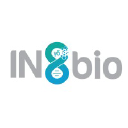Companies
Discover all trending biotech companies
Discover all trending biotech companies

Company Research Platform
Global Employees
31
R&D Investment
3.8
Patents Filed
19
IN8bio's core business segment revolves around the development of innovative gamma-delta (γδ) T cell immunotherapies for cancer treatment. This involves extensive research and development activities focused on genetically modifying γδ T cells to enhance their tumor-killing capabilities. The company employs cutting-edge technologies such as Drug Resistant Immunotherapy (DRI) and T cell engager platforms to target and eradicate cancer cells. Their therapeutic pipeline includes autologous and allogeneic γδ T cell product candidates, currently undergoing Phase I clinical trials for solid tumors and acute leukemia. The goal is to provide patients with more effective and less toxic cancer treatments, improving remission rates and overall survival. Future opportunities include expanding the application of γδ T cell therapies to other cancer types and exploring combination therapies with existing treatments. Regulatory and clinical aspects are central to this segment, with ongoing efforts to secure FDA approval and advance clinical development.
The INB-200 program is a key business segment focused on the development of a genetically modified autologous gamma-delta T cell product candidate for the treatment of solid tumors, particularly glioblastoma. This segment involves rigorous clinical trials, including ongoing Phase 1 studies, to assess the safety and efficacy of INB-200. Research and development efforts are directed towards optimizing the genetic modification of T cells to enhance their ability to target and destroy tumor cells. The program aims to address the unmet medical need for effective treatments for aggressive solid tumors, offering patients a potential for improved survival and quality of life. Market positioning involves establishing INB-200 as a leading immunotherapy option for glioblastoma, with a focus on demonstrating superior clinical outcomes compared to existing therapies. Future opportunities include expanding the application of INB-200 to other solid tumor types and exploring combination therapies. Regulatory and clinical aspects are paramount, with ongoing efforts to secure FDA approval and advance clinical development.
The INB-100 program is dedicated to the development of an allogeneic gamma-delta T cell product candidate for patients with acute leukemia undergoing hematopoietic stem cell transplantation. This segment focuses on leveraging allogeneic T cells to provide an off-the-shelf immunotherapy option, reducing the time and complexity associated with autologous cell therapies. Research and development activities involve optimizing the manufacturing process for allogeneic T cells and enhancing their ability to target and eliminate leukemia cells. The program aims to improve outcomes for patients undergoing stem cell transplantation, reducing the risk of relapse and improving overall survival. Market positioning involves establishing INB-100 as a leading allogeneic T cell therapy for acute leukemia, with a focus on demonstrating superior clinical efficacy and safety compared to existing treatments. Future opportunities include expanding the application of INB-100 to other hematologic malignancies and exploring combination therapies. Regulatory and clinical aspects are critical, with ongoing efforts to secure FDA approval and advance clinical development.